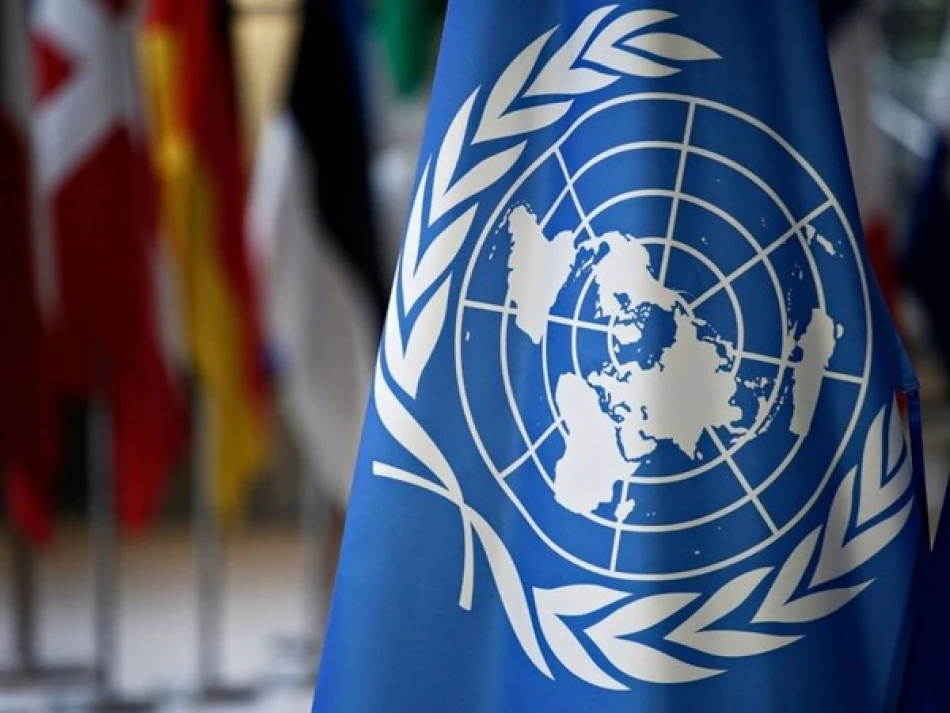
UN Security Council Renews Mandate to Support Hodeidah Agreement in Yemen
UN Security Council Extends Yemen Mission Mandate Amid Rising Military Tensions
The UN Security Council has unanimously extended the mandate of its mission supporting the Hodeidah Agreement in Yemen until January 28, 2026, as military escalation threatens the fragile stability of the war-torn nation's crucial Red Sea port city. The decision reflects growing international concern over deteriorating humanitarian conditions and signals potential restructuring of UN operations in Yemen.
Strategic Importance of Hodeidah Port
The United Nations Mission to Support the Hodeidah Agreement (UNMHA) plays a vital role in maintaining fragile stability in Yemen's most critical commercial gateway. Hodeidah port handles approximately 70% of Yemen's imports, making it essential for humanitarian aid distribution to millions of Yemenis facing famine-like conditions.
The 2018 Stockholm Agreement between Yemen's internationally recognized government and Houthi rebels established the framework for managing Hodeidah city and the ports of Hodeidah, Salif, and Ras Issa. This deal represented the most significant diplomatic breakthrough in Yemen's conflict, which has raged since 2014.
Escalating Regional Tensions
Military Developments
Resolution 2786 acknowledges indicators of renewed military escalation that threaten to unravel years of careful diplomatic progress. The Houthis' recent attacks on international shipping in the Red Sea have transformed Yemen's conflict into a broader regional crisis, drawing military responses from the United States and its allies.
Humanitarian Crisis Deepens
The Security Council's emphasis on deepening humanitarian needs reflects alarming trends across Yemen. The World Food Programme estimates that 17.6 million Yemenis require humanitarian assistance, with the situation in Hodeidah particularly precarious due to its role as the primary entry point for aid supplies.
Operational Challenges and Reforms
The resolution calls for unimpeded access for UN patrols, highlighting ongoing restrictions that have limited the mission's effectiveness. The Security Council has requested Secretary-General António Guterres to conduct an additional review by November 28, 2025, focusing on improving efficiency and structural coherence across UN missions in Yemen.
This review mandate suggests international frustration with the current operational framework. The Security Council explicitly stated its intention to examine the full range of options for the mission's future, including potential termination or significant modifications based on ground developments.
Implications for Regional Stability
Economic Impact
The extension comes as Red Sea shipping disruptions have increased global supply chain costs and insurance premiums. Major shipping companies continue to avoid the Suez Canal route, impacting international trade worth billions of dollars annually.
Diplomatic Opportunities
The resolution notes that evolving contexts within Yemen and the broader region may create opportunities for enhanced coordination. This likely references potential Saudi-Iranian diplomatic progress and changing regional dynamics that could influence Yemen's conflict trajectory.
Looking Ahead
The mandate extension until January 2026 provides breathing space for diplomatic initiatives while acknowledging the mission's uncertain future. The Security Council's conditional language suggests that significant changes in Yemen's situation—including a potential nationwide ceasefire—could trigger major operational adjustments or mission termination.
The emphasis on cost reduction and efficiency improvements reflects broader UN budget constraints and donor fatigue after nearly a decade of conflict. The mission's future will likely depend on demonstrable progress in implementing the Stockholm Agreement and broader peace negotiations between warring parties.
Most Viewed News

 Layla Al Mansoori
Layla Al Mansoori






